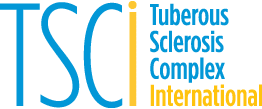Beyond the Guidelines: How we can improve healthcare for people with TSC around the world
About this paper
TSC International (TSCi), which is a consortium of organisations including TSA that support individuals with TSC around the world, has published a companion paper to the updated TSC management and surveillance guidelines. Beyond the Guidelines examines the state of TSC care around the world, identifies gaps in TSC care and makes recommendations on how TSC organisations and key stakeholders can work together to overcome barriers in TSC care.
How was data for the paper collected?
The TSCi team ran the Improving Care project from 2015 to 2017, which included surveys, interviews, and workshops with TSC advocates, health care professionals as well as a global survey of patients with TSC and their family members. The project focused on health care for people already diagnosed with TSC.
What were the findings?
The guidelines represent the ideal or ‘gold’ standard of care. This TSCi paper revealed significant gaps between the guidelines and what is actually available to people with TSC. The paper identified three priority areas of action. People with TSC need health care that:
- Implements the clinical guidelines
- Provides access to TSC expertise
- Is coordinated and integrated
The TSCi team believe that awareness of the guidelines for both people with TSC and their health care teams is critical in ensuring that people receive optimal care. Yet, the paper identified that knowledge of the guidelines among people with TSC and their caregivers may be low (around 30% overall internationally and 44% in Australia) and frequently the guidelines are not shared with people’s doctors (around 48% had shared overall internationally and just 30% in Australia).
The team also found that barriers to accessing imaging- particularly MRIs, treatments – such as mTOR inhibitors and Vigabatrin and clinicians with TSC experience remain problematic.
The complexity of TSC often involves the care of a large number of medical, allied health, education and disability support clinicians, often leading to a lack of coordinated and integrated health care. Coordination of care was identified as critical to improving the outcomes for people living with TSC.
Gaps in the provision of psychiatric and psychosocial supports were also identified in many countries. People with TSC and their families describe ‘ideal care’ as having a holistic approach that includes both medical intervention in addition to social and family care and support.
The paper identified that lack of coordination of care is particularly an issue when children transition to adult care, and in adults with TSC who have intellectual disability and/or live-in residential care. The impact of poor coordination is that people may become lost to follow up and present later with life-threatening complications of TSC.
Conclusions
The international diagnostic criteria and surveillance, and management guidelines are crucial to improving the care of people with TSC. This companion paper proposes a number of useful strategies to improve the care of people with TSC at international and local levels and makes suggestions for TSC organisations and clinicians and identifies opportunities for future research.
Stuart, C., Fladrowski, C., Flinn, J., Öberg, B., Peron, A., Rozenberg, M., & Smith, C. A. (2021). Beyond the Guidelines: How We Can Improve Healthcare for People with Tuberous Sclerosis Complex Around the World. Pediatric Neurology, 123, 77-84
The full text of the paper is available at: Beyond the Guidelines: How We Can Improve Healthcare for People with Tuberous Sclerosis Complex Around the World – https://www.tscinternational.org/242-2/
DISCLAIMER
This information is intended to provide some insights into recent TSC-related research. It is not intended to, and it should not, constitute medical or other advice. Readers are warned not to take any action without first seeking medical advice.

